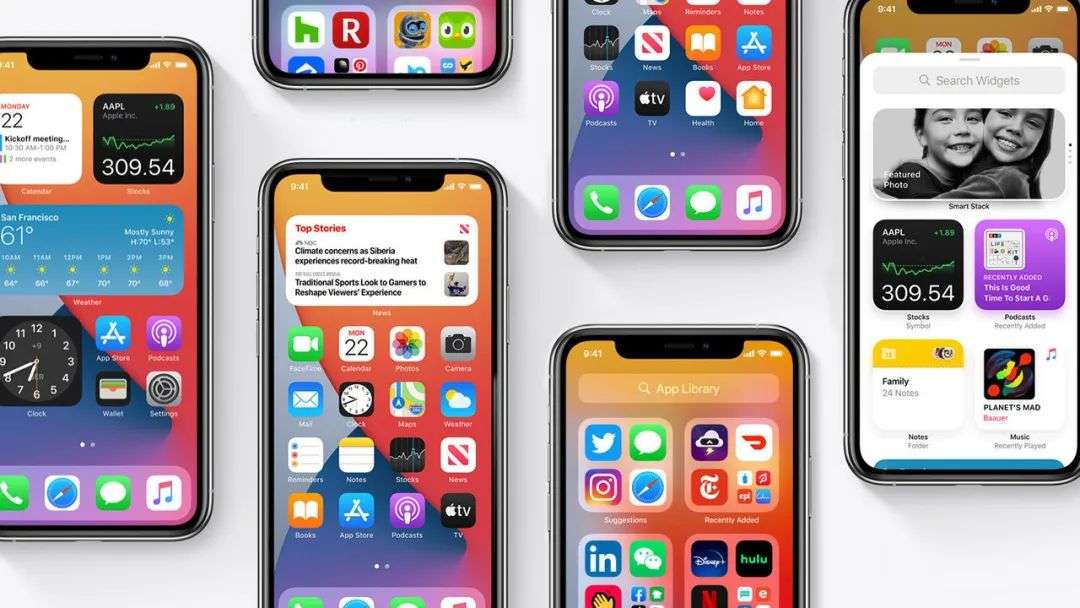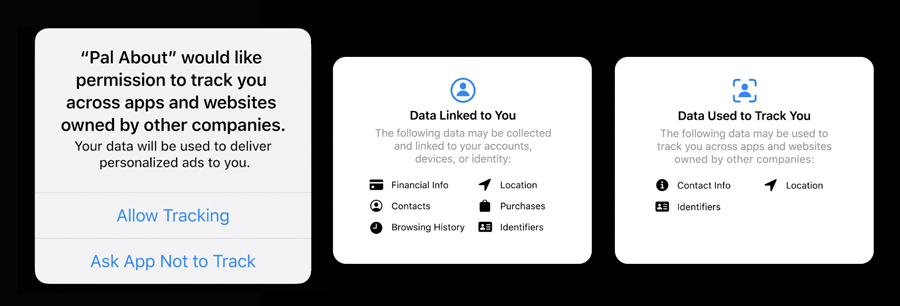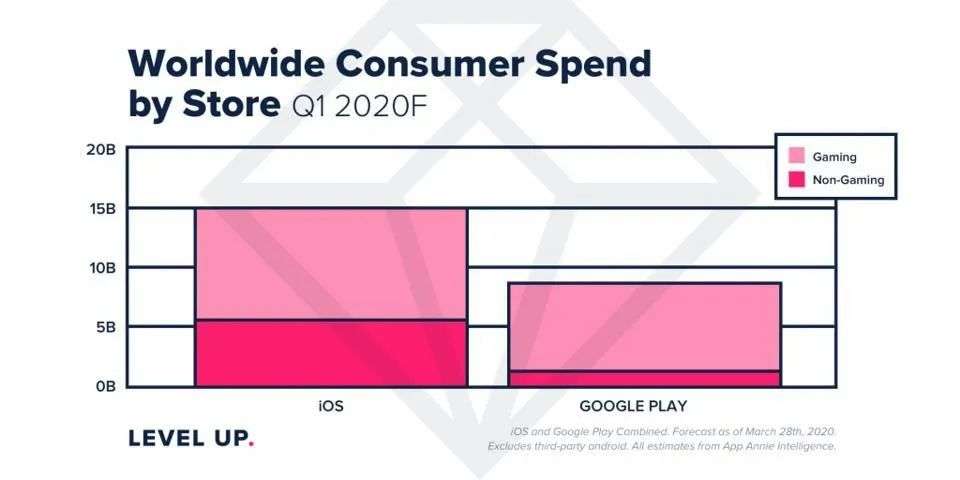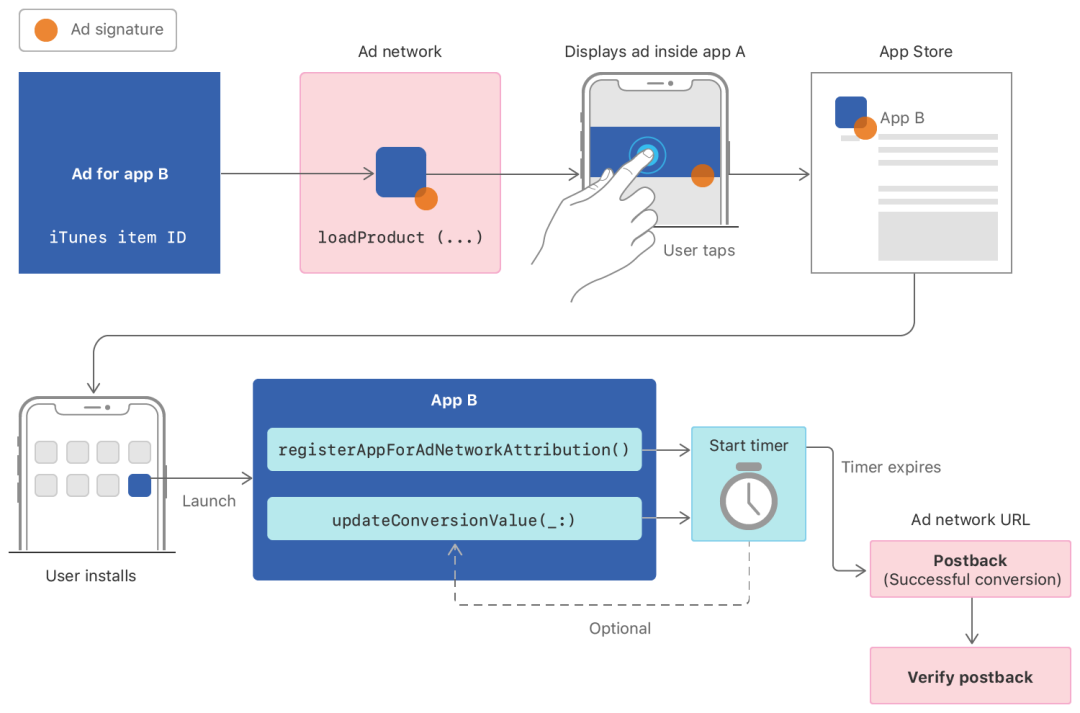Technology companies should not fool users, gain the trust of users, and let them fully understand the flow of data, which is more meaningful than just staring at the numbers of advertising revenue.
Editor’s note: This article is from the micro-channel public number “geek park” (ID: geekpark) , Author: Jesse.
Picture source: Apple
Tech companies should not fool users, gain the trust of users, and let them fully understand the flow of data, which is more meaningful than just staring at the numbers of advertising revenue.
Although the new iPhone is absent, on September 16th, local time in the United States, Apple pushed iOS 14 as scheduled to “relieve hunger” for fans.
There is no need to go into the new features and new tricks of iOS 14, which have been fully demonstrated at the WWDC Developer Conference in June. But there is one detail that you must know as a user: In the new iOS 14 system, Apple has made the ad tracking function a privacy option that can be switched, and any App will pop up when trying to read the user’s device ID. Ask the user if they agree.
This is obviously blocking the way for Google and Facebook to make money.
Because their advertising system needs to track users’ online behaviors and perform accurate advertising pushes. If users choose not to open the advertising tracking function, the revenue of these large companies’ advertising business will obviously be frustrated. According to the forecast given by “Forbes”, this update of iOS 14 may affect the revenue of the global $80 billion advertising market.
It can be said that the iPhone uses a “pop-up window” to accurately strike the vitals of these large companies. Apple has not considered the commercial interests of its partners. It has taken the lead in “betraying” the rules.
Industry “default”, Apple says “no”
Every Apple mobile phone we use contains an IDFA Advertising Identifier (Identifier for Advertising, referred to as IDFA), which is used by major Internet companies to track user behavior and record downloads or purchase conversions obtained by advertising. Times, and advertisers use thisHow much advertising costs the platform will pay.
For example, the reason why you browsed a certain product on the e-commerce platform A and opened the news client B will see the advertisement of the same product, it is because two apps A and B read your iPhone IDFA.
Such a tracking mechanism has brought huge benefits to advertisers, but it has also brought about a series of privacy issues, which has caused considerable controversy.
The focus of the dispute is privacy, and the solution is “transparency.” When most users use Internet products, they are not clear about the purpose of these products, what private information they have obtained, and how they do it. To protect privacy, users need to understand the entire process of collecting information by technology products and have the right to intervene and control.
In 2016, the EU introduced the GDPR, the most stringent data bill in history. Two years later, the GDPR came into effect. Related product functions of various technology giants have also been launched one after another.
Similar to Apple’s privacy page, users can log in to the backends of Google and Facebook accounts at any time to see what they are like in the eyes of these technology companies. Now, in Google’s advertising settings page, users can see all the advertising labels that Google puts on themselves, including gender, age, location, mobile phone system, music and movie tastes, sports hobbies…Users can delete a single Tab, you can also turn off the entire “Personalized Ads” feature with one click.
Open the “Data and Privacy” page, users can update their personal data or delete their account by themselves | Apple
But the problem is that these features are turned on by default, and most users still don’t take the initiative to view and modify their own advertising tags and turn off tracking.
So Apple decided to continue to promote this matter.
On iOS 14, Apple made the ad tracking function of each iPhone an explicit privacy option. When the user opens the App for the first time, iOS will actively ask the user “Do you agree to the App tracking you across websites and apps?”. Obviously, a large number of users will choose to refuse.
iOS 14 allows users to close apps to track devices across websites and apps|Apple
According to Apple’s consistent attitude, app developers cannot restrict users from using apps normally just because users “refuse to be tracked.” If the App does not run normally because the user refuses to open a certain permission, the consequence is likely to be directly unable to be listed on the App Store. Similar practices are not uncommon on the Android platform.
Also, Apple has long thought of this layer. On iOS 14, if a user chooses “Refuse to be tracked”, Apple will not tell the App “User declined”, but will return a randomly generated “false” to the App. Device ID”, developers have no means to efficiently distinguish the authenticity of these IDs.
Even so, developers have no reason to blame Apple. The IDFA advertising tracking function still exists, and the control is still in the hands of users. Apple just changed “default on” to “default inquiry.”
But just such a small “default state” change may change the rules of the game in the entire online advertising industry.
I was robbed of money, at a loss
In August, Facebook made it clear that this change in iOS will weaken its ability to deliver personalized ads, and it will hit its future financial situation. If accurate push is not possible, the delivery effect of Facebook ads will drop significantly, directly affecting the price of ads. Facebook conducted a small-scale test on the iOS 14 beta, and the result was a 50% cliff-like decline in advertising revenue.
Although the iPhone does not occupy the mainstream of the market in terms of the number of users, the consumption power of iPhone users and the advertising value are higher.
In the first quarter of 2020, the iOS application market will reach US$15 billion, almost twice that of Android. Consider FacebooMost of the ads placed by k and Google in the iOS App are game ads, and this part of the business is very important to the two companies.
According to the data given by App Annie, global users’ consumption in the Apple App Store has reached 15 billion US dollars|App Annie
Google and Facebook are not the only ones facing challenges. Because the entire market relies too much on IDFA, the impact will soon spread to the entire industry, including customers who buy ads, and App developers who rely on advertising models for revenue. Morgan Stanley said that the revenue of the entire advertising industry will suffer.
Even Blizzard has been affected. In the August earnings conference call, Activision Blizzard, whose main business is not mobile games, said that it was weighing various solutions to cope with changes in iOS. Solutions include “requiring users to provide email addresses (for tracking)” or “pushing reminders to users and requesting to start tracking functions”.
According to “China Business News Weekly reported that after the end of the Apple Developer Conference on June 22, the data compliance departments of several major Internet companies in China were blown up. An anonymous person broke the news that his company quickly formed a work group of hundreds of people to evaluate the impact of the “IDFA New Deal” on the company’s advertising business; and checked all the company’s apps to confirm whether there are clauses that violate Apple’s upcoming iOS 14 version New regulations related to user privacy in China.
Almost all Internet companies whose main business model is programmatic advertising-thousands of people-are all dealing with this “trouble” urgently. And dealing with this trouble seems to be more difficult than dealing with the “ID permission change” launched by Android phone manufacturers a year ago.
In 2019, the four major domestic Android-based mobile phone companies also shut down developersPermission to view the user’s device ID, but they give an alternative to a variable ID—OAID (Open Anonymous Device Identifier). This OAID can be turned off or reset. If the user If he is willing, he can reset his digital identity on the Internet every day.
Although this kind of variable ID has a certain life cycle limit, it will not shake the foundation of programmatic advertising. The optional control Apple provided on iOS 14 this time directly cuts off the fortunes of partners.
In early September, due to various pressures, Apple decided to postpone the launch of this feature to early 2021. Apple said it will give developers more time to adjust the App to adapt to this new change.
“Mingxiu plank road, dark and dark”?
It’s just that Apple wants to play more than just a “destroyer” role. While attacking the IDFA model, it also designed a new “reconstruction plan.”
Two years ago, Apple designed an ad tracking framework for iOS, SKAdNetwork. Like IDFA, it can track the effectiveness of advertising. The difference is that SKAd does not track specific users or devices, but only “behavior”.
Specifically, when a user clicks on an advertisement, SKAd will assign an ID to the click behavior, and then display the promoted App page. If the user downloads, installs, and runs the App, SKAd will record the subsequent operations , And send the results to advertisers. Advertisers can still evaluate the effectiveness of their delivery, but they don’t know who has been converted.
SKAd advertising framework developed by Apple|Apple
Compared to IDFA, SKAd clearly makes it more difficult to deliver accurately, but advertisers have no choice. At the end of August, Google has added support for SKAdNetwork in the latest version of the advertising SDK, and Facebook has also announced that it will add related support to the future SDK.
Apple has always regarded “privacy” as an important product strategy, and has continuously introduced privacy protection features that are stricter than the industry average.
In 2017, Apple launched the “Smart Anti-Tracking” function on the Safari browser, which will periodically clear the browser cookies cache by default, blocking the long-term cross-web tracking of users by the advertising platform. After that, every year of system updates, Apple will further strengthen this function on the basis of the previous ones.
There are many other similar measures. For example, Apple has long banned apps from reading the MAC address of mobile phones used for networking to prevent users from being tracked. In iOS 14, Apple has further enhanced this feature to generate a unique MAC address for each different Wi-Fi network, preventing public Wi-Fi from tracking the user’s location through this feature.
Cook has repeatedly stated on various occasions, “We will not treat customers as products (sold),” emphasizing that Apple’s business model is based on “protecting user privacy.” Apple produced a series of product advertisements emphasizing privacy, calling out the slogan “Privacy? That’s iPhone.”
To fundamentally solve the privacy problem, Apple alone is obviously not enough. Today, the entire technology industry is facing unprecedented doubts, and users’ concerns about privacy issues have long been directed at more than one product or one company. This concern is evolving into distrust of the entire technology industry and all technologies.
Ordinary people’s fear of “technology invasion of privacy” is growing|Unsplash
At the hearing of the US Congress in July this year, you will find that members of the congressmen’s questions are scattered, often digressing, and rarely grasp the key points, but their intention cannot be more obvious, that is, to weaken the independence of technology companies. Since the development of science and technology has been ahead of politics and legislation, technology giants like Facebook, Google, and Apple have a tendency to evolve into policy makers and regulators. This is something the government does not want to see.
When technology companies continue to grow bigger and stronger, and may even become technology powerhouses, the government will find ways to restrain them and even use their power for their own use.
Apple has seen such a trend, and it must be unwilling to see things like “technology and human being opposed” happen. From a utilitarian point of view, this is also a stupid act of breaking one’s own jobs.
On the surface, Apple seems to have made a move to “betray” its teammates, but its initiative to “dismantle” is more like a “self-protection”, and even “disruptive” to maintain the upward development of technology companies Access and opportunity.
If technology companies do not make changes and allow technology pessimism to spread, it will only result in a “lose-lose” situation in the end.
And this kind of businessman-like “wisdom”, as early as ten years ago, Jobs has set an example for Apple.
At the D8 conference ten years ago, Dr. Mo talked about the privacy concerns brought about by technology products. At that time, Jobs clearly drew a clear line from “the entire Silicon Valley.” In explaining the way Apple handles privacy issues, he said:
“We believe that users are smart and have their own judgment. Some people may be willing to share more data, but you must get their permission first and ask every time until they ask you not to ask again . Let them know clearly what you will do with their data.”





